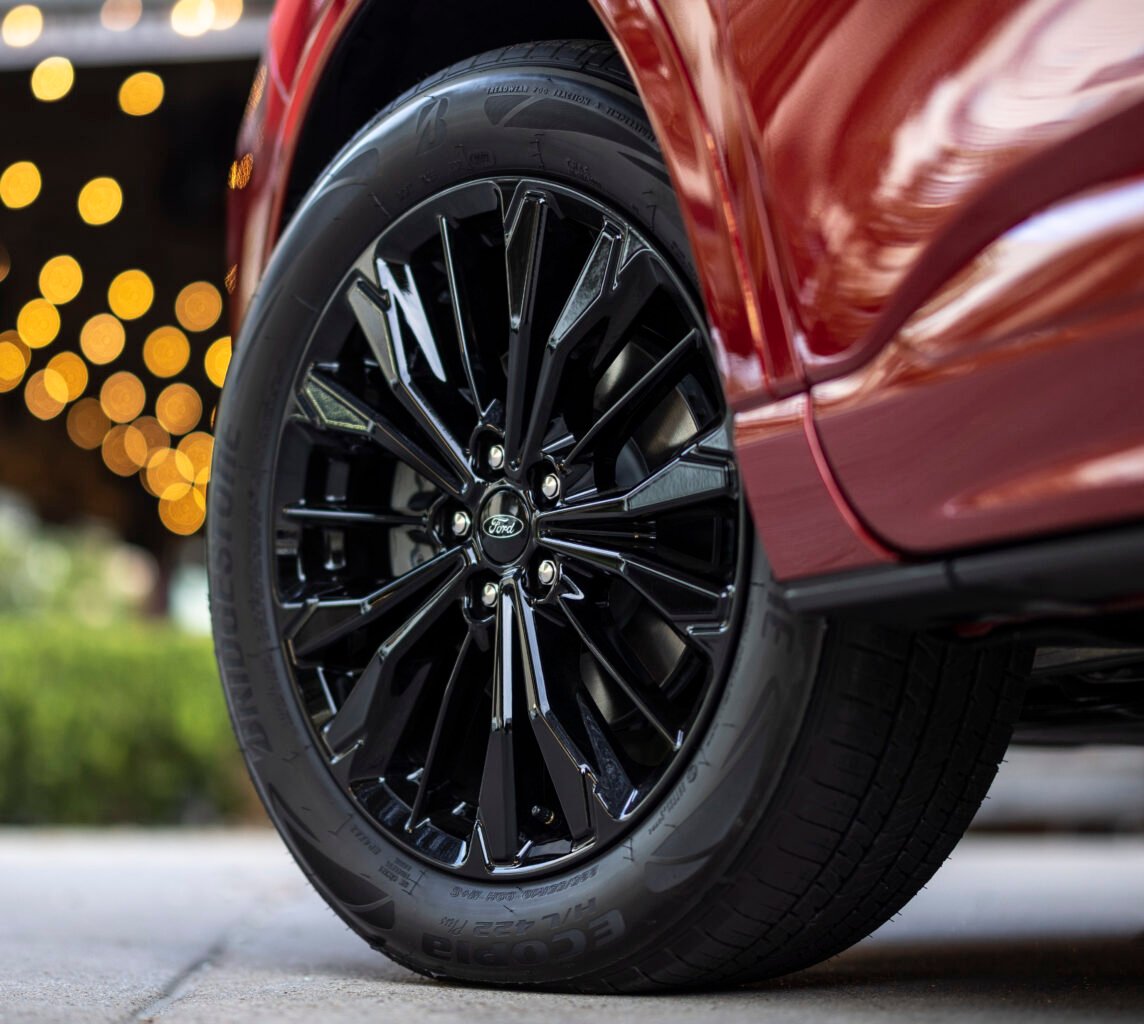Are dealer add-ons worth it? Here’s how to avoid 16 car dealership extras!
Salespeople can be intimidating, especially when it comes to filling your car with extras. They can be relentless and force you into thinking that all the add-ons are necessary.

The reality is that most of these extra features aren’t necessary or mandatory, but this sparks another question. Are dealer add-ons worth it? Let’s find out.
The reality is that most dealer add-ons are not worth it, at least not in the conditions that the dealerships offer. The upmark on these can be excessive, leading to unnecessary costs.

“Drive Past Myths: Get the Real Deal on Car Buying!”
🚘 Uncover 13 Car Buying Misconceptions with Our FREE Newsletter!
Plus you will get our quick tips, expert advice, and myth-busting insights delivered straight to your inbox.
Subscribe now and make informed decisions without the detours.
“Experts Hate This! Learn the Car Buying Secrets They Don’t Want You to Know. Free Subscription!”
So, excluding costs, are dealer add-ons worth it for other reasons? This article explains when you can consider them.

What are dealer add-ons and options?
When you step into a car dealership to buy a new vehicle, you are likely to encounter various dealer add-ons and options. These extras are additional features or services that the dealership offers to enhance your car purchase experience.
Understanding the dealer-installed options is crucial as they can significantly impact the overall price of the car.
Are Dealer Add-Ons Worth It?
There are plenty of dealer add-ons, but the following list comprises the most common. Not only that, but we also provide a bit of insight on which are good and which aren’t worth it.
These are the most common dealer add-ons:
Fabric stain protection: this add-on consists of textile protection and you might be tempted to use it if you have kids or carry dirty cargo. However, for a lower price, you can have a professional clean your fabric, when you need it.
Tire warranty: it may seem perfectly reasonable to get a tire warranty but remember this: tires come with some form of warranty and most vehicles don’t have damage-prone, high-performance tires.
VIN etching: Vin etching consists of etching the VIN number in certain parts of the vehicle for theft protection. It’s not as critical as you might think, as cars already have the VIN imprinted in several locations.
Extended warranties: This extra is a controversial one. Some love it while others avoid it. The reality is that most extended warranties are very expensive (adding $2,000 more), and might be so difficult to navigate that it may not be worth it.
Dealer Tinting: If this is your personal preference, then it’s an useful option. However, you can always find a cheaper service outside the dealership, as long as getting it from a third-party provider doesn’t void any warranty.
Alarm systems: These systems are largely ineffective and overpriced. They might not be as efficient at protecting your vehicle. However, the most expensive alarm or tracking systems can be effective. Are they better than an insurance? Not necessarily.
Luggage Rack: While practical, they can be overpriced. So, choose them if they are really beneficial for you.
Paint protection: paint protection can provide an added layer to your paint, thus lengthening how the car looks. However, keep in mind that ceramic protection won’t stop stone chips or scratches. Also, keeping your car clean is vital for these to work efficiently. It doesn’t mean that the paint protection allows to skip washing.
Entertainment: entertainment systems are usually inflated in price, and aren’t worth it. Factory systems have improved considerably.
Rustproofing: this could make sense in snowy areas. However, dealerships aren’t the only providers and it’s essential to remember that washing your car frequently is essential to prevent salt damage and rust.
Windshield protection: this add-on has two issues. It can be expensive and the chances of the windshield getting damaged are low. However, some people have found it useful.
Delivery fees: these are unavoidable fees in most cases, since the manufacturer includes them in the cost.
Nitrogen tire inflation: this is one of the most unnecessary add-ons, as all tires lose air and nitrogen only has more effect if you drive high-performance vehicles.
Key protection: losing or damaging your keys is frustrating and replacing them is expensive. So, these make sense. However, how often does that happen to you? It’s a matter of balance.
Heated seats: in some states, these are extremely practical and the negative side might be that the price for them might be high.
Service and maintenance packages: these are becoming ever more common. Reject them if you don’t plan to use the dealership, but at the risk of losing warranty coverage.
In the end, answering “are dealer add-ons worth it?” depends a lot on how you drive and what you want to pay.
How to differentiate between necessary and unnecessary add-ons
Before agreeing to any add-ons, it’s important to evaluate whether they are truly essential for your needs. It’s advisable to research each option and determine if it aligns with your priorities and budget.
Some add-ons will be necessary to maintain a valid warranty and, yes, this can be frustrating. However, by reading the fine print, you can understand which may void the warranty.
Moreover, as Auto Fraud Legal Center states, In two recently filed cases, dealerships are alleged to have represented theft-deterrent devices, like LoJack and Tracker, and service contracts (often referred to as “extended warranties”) as mandatory conditions to a vehicle purchase. This is simply not the case. These items are optional.
Are extended warranties a good investment?
Extended warranties are often presented as a valuable investment by dealerships. However, it is essential to weigh the pros and cons before making a decision.
Alternatives to dealership warranties
Instead of opting for dealership warranties, consider exploring third-party warranty providers that may offer more flexibility and better coverage options.
What to consider before purchasing an extended warranty
Before committing to an extended warranty, assess factors like the reliability of the vehicle, the length of coverage, and the cost-effectiveness of the warranty.
Are dealer add-ons worth it when it comes to extended warranty? To answer the question, it’s best to analyze all the clauses within the document.

Should you get paint and fabric protection add-ons?
Dealers often promote paint and fabric protection add-ons to safeguard your vehicle’s exterior and interior. However, it’s essential to evaluate the effectiveness and cost-benefit of these options.
DIY alternatives for protecting your car’s paint and fabric
If the dealership’s paint protection packages seem pricey, you can explore do-it-yourself alternatives that may offer comparable results at a lower cost.
Understanding the risks of dealer financing add-ons
When finalizing your car purchase, be cautious of dealer financing add-ons such as credit insurance policies and gap insurance, as they can significantly inflate your overall expenses.
Potential pitfalls of dealership credit and financing options
Dealerships might push additional insurance products during the financing process, so it’s crucial to carefully assess the necessity and cost implications of these add-ons.
How to negotiate dealer add-ons at the dealership
During the negotiation phase, it’s vital to actively engage with the salesperson to avoid unnecessary add-ons that may drive up the price of the vehicle.
Understanding dealer incentives and markups on add-on products
Dealerships often mark up the prices of add-on products, so make sure to shop around and compare prices before agreeing to any extras. You can also ask the dealer to remove or reduce certain add-ons to secure the best price.
Closing thoughts on Are Dealer Add-Ons Worth It
When buying a car, many buyers ask: are dealer add-ons worth it? The answer is, most of the time, no.
While certain add-ons like key protection and heated seats may offer tangible benefits depending on individual needs and local climate, many, such as nitrogen tire inflation and windshield protection, often fail to justify their cost. It’s crucial to assess each add-on’s value against its price and your specific requirements before making a decision.
Extended warranties and protection packages, frequently touted by dealerships, demand careful consideration. Alternatives exist beyond dealership offerings, including third-party warranties that might provide better value.
Before committing to any extended warranty or protection plan, evaluate the vehicle’s reliability, warranty terms, and overall financial sense to ensure it’s a wise investment rather than an unnecessary expense.
Finally, when it comes to dealer financing and insurance add-ons, it’s important to remain vigilant and question the necessity and cost implications of each. Dealers may push these products to increase their profit margins, so researching and comparing options independently is key.

I LOVE THIS INFORMATION!!! MORE AND MORE I FEEL LIKE CAR BUYING IS A MINEFIELD!!! PLUS ANYTIME YOU NEED A VEHICLE URGENTLY, YOU ARE AT THE MERCY OF A GESTAPO FINANCE POLICY!!!
I HAVE LEARNED MORE AND MORE TO JUST WALK OUT WHEN THEY START PRESSURING YOU TO, ACCEPT UPGRADES AND ADD-ONS.
SINCERELY CHUCK